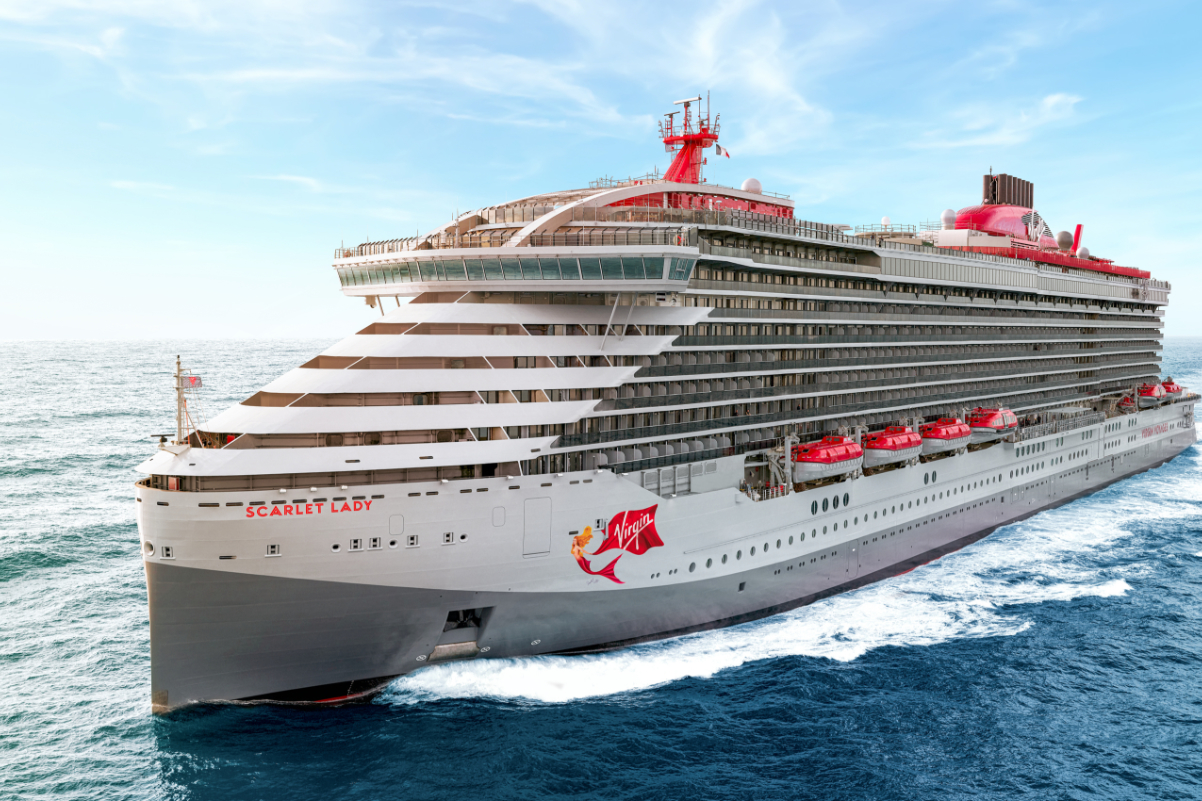Expanding the Economic and Social Impacts of Conventions

Skift Take
This sponsored content was created in collaboration with a Skift partner.
There is much more intentional focus in the meetings and events industry these days on the long-term economic and social impacts of conventions.
In the past, cities have always reported the short-term economic impact of business events in terms of delegate spend and jobs/taxes generated. However, there are many more intangible benefits derived from conventions, such as the development of new business relationships, new academic and scientific research, and new corporate investments in the host destination, to name a few.
Those benefits are more difficult to measure, but their value when calculated over years, decades, and beyond can often exceed the temporary attendee expenditure exponentially.
City leaders in convention and visitors bureaus and economic development organizations have always been aware of that, to varying degree. The shift, of late, is they’re now collaborating more strategically with each other and local business and academic leaders to better leverage the volume of corporate decision-makers and sector expertise visiting their cities during conventions.
Sherrif Karamat, the freshman CEO of the Professional Convention Management Association (PCMA), is one of the people responsible for the rise of attention around the long-term impacts of business events.
Karamat is also stewarding the association’s international expansion. PCMA acquired the Incentive, Conference & Event Society Asia Pacific (ICESAP) last year. The organization also launched the annual European Influencers Summit in 2017, which "brings together senior business event professionals for an interactive program of knowledge sharing, centered on embracing disruption and unconventional thinking in the digital age.”
Furthermore, Karamat announced the launch of the PCMA Ascent CEO Promise at IMEX Frankfurt’s “She Means Business” panel this year. The program asks CEOs to commit to embracing a culture of inclusiveness in their organizations and events, building on what’s happening in the wider business community. The Ascent CEO Promise outlines three goals:
- Make our workplaces and events open and trusting settings
- Provide education on barriers to inclusivity, including unconscious bias
- Share what we know, what we learn, and what needs improvement
We spoke to Karamat recently for a deeper understanding of his vision for the industry.
SkiftX: More cities are exploring how business events often bring much greater benefits to their destinations than just the short-term attendee expenditure, or “heads in beds,” so to speak. And because of that, more convention bureaus and economic development organizations are pooling resources to engage visiting business and academic leaders more effectively and promote opportunities in their city. How do you see that evolving?
Sherrif Karamat: I think that it varies, and we have a long way to go. At PCMA, we believe that business events are a catalyst for economic and social progress. We believe that business events are a catalyst for an organization's success, whether it’s an association or corporation. And then, we believe that business events are a catalyst for personal and professional development. Right now, however, there aren’t a lot of mechanisms to measure the true economic development potential of business events. That's because they’re not being seen properly, as of yet, as economic development engines because they’re linked so closely to the tourism industry.
What is happening today, we’re still measuring the impact of business events based on the initial cash infusion into the economy. Whereas, for example, if you look at the European Society of Cardiology conference held in London a few years ago, they partnered with the hospitals and the government to align their interests. There was different research launched, which is still happening, based on that conference. There’s also the broader future implications of startup growth in technologies related to the medical industry, based on the event. All of that transpired in London, but those things are not being captured in terms of the overall long-term economic and social impacts.
SkiftX: What is your vision for expanding the conversation around the long-term social and economic impacts of business events?
Sherrif Karamat: We launched the Ascent CEO pledge, which initially started as a women's initiative, and now we’re broadening it to include the full scope of inclusivity and diversity in our industry. And, it's not inclusion just based on skin color, sexual orientation, gender, or disabilities. We’re also looking at inclusion in terms of diverse ideas and how people think differently. So, what other social causes can we address when we meet? It can be anything, from environmental to anything, so we have to look at the value of business events in terms of building platforms for growing more diverse and more inclusive communities.
If you think back to 2008 and 2009, especially in the corporate world, a lot of organizations canceled their events because they couldn't equate the value of an event to their organizational success. As an organization, we have done a very good job of proving why they should invest in an event. So, what are the values? The truth of the matter is there is tremendous value in building the sales pipeline, developing your staff, developing your culture, and doing a whole bunch of other things to drive their business home. But they were never tangible measures back then, and when something isn't measured, it is easily dispensable. That's what happened in 2008 with many corporate events. Now, we're seeing where better reporting for an event is benefiting a company's bottom line.
Today, if you think of the value of lifelong learning, and the society we live in where everything changes so rapidly, we all have to keep up our learning and development. Events are like a lot of the many different platforms in our lives. We have all these communities. Think of Facebook, think of LinkedIn, they're all communities of different, like-minded people. Events are the same thing. You coalesce around something that you are interested in with communities sharing the same knowledge, understanding, and development goals.
SkiftX: What about this idea of more CVBs in midsize cities positioning themselves as platforms for accessing specific clusters in advanced industries? How do you see that evolving in smaller markets?
Sherrif Karamat: It’s very interesting what’s happening. Let’s take Austin and South by Southwest. Think of what transpired. Think of going back 20 years when it was just emerging. Austin has gained such notoriety, and you don't even say "South by Southwest" anymore. People say "South by" and you know what they're talking about. It is a very powerful tool, and so look at Pittsburgh where we’re hosting PCMA Convening Leaders in January. Look at what they’re doing with new discoveries in robotics, aeronautics, and autonomous vehicles. Capitalizing on your strengths makes economic sense, regardless of your size, and I see destinations everywhere that are building on that much more effectively.
Meeting with some folks from Uganda recently, one of the things that they're very interested in promoting is the primate supply line, and capitalizing on people who would be interested in the knowledge sharing around that. Their expertise in combatting infectious diseases is very valuable as well, so they’re looking at how they can capitalize on that. It's happening everywhere. I think it's critically important for our industry to move forward in this direction together, although I still see a divide in how clients and buyers are looking at how they can integrate with that expertise. We need to get there faster.
SkiftX: How do we make this sector expertise theme resonate with more buyers so they see the real value proposition?
Sherrif Karamat: A lot of buyers are actually there, but we have to remember there are two buyers. There are the buyers who are looking to facilitate the physical event, which is a delivery channel, and then there’s the CEO who's trying to grow the organization and its business. There are different conversations that have to happen, including with the event organizer and the people that are looking at the overarching business of the organization. Destinations need to talk to both, where you’re selling the economic benefits of the location on one level, and the different economic opportunities for C-suite executives on another level, who understand how to grow their business and not just market an event.
SkiftX: When we go to Convening Leaders in Pittsburgh, will we have access to some of these people that are developing all of this advanced technology? Is that part of your programming?
Sherrif Karamat: Yeah, absolutely. Listen, what is happening in Pittsburgh is phenomenal. We’re talking about a city that we used to refer to as “steel country” 30 years ago. Today, it’s one of the most environmentally progressive cities in the world. Not just in the U.S. and Canada — the world. If you go to the convention center, it blows you away, right?
The whole idea for the next Convening Leaders is about integrating the community into the program. I want to see how robotics will influence not just events, but facilitate better learning. That's going to be part of the conference. Also, let's look at autonomous vehicles, although it's not just about the vehicles. We want to look at the profound impact that's going to have on other industries. Think about the potential. I don't know for sure, but a child born today is probably never going to drive a car.
That is a pretty profound change in society. People find new beginnings at Convening Leaders, so the question is, how are we changing so that we can understand the structural shifts in society across all of our communities worldwide?
SkiftX: We've been working with CVBs where we're exploring the potential development of urban innovation councils, steered by stakeholders in the visitor economy. The idea is that this type of council could help connect hotel and convention center group sales with the local innovation economy more strategicaly, and report back on best practices. What do you think of that idea?
Sherrif Karamat: It is a phenomenal idea because we need to get out of our business in order to expand into a larger business and industry context. We need to understand that a great doctor is not necessarily going to make a great administrator for a hospital. That's not their specialty. When you think about someone that might be focused on aeronautics, and someone who might be focused on drones, and someone that might be focused on the Cleveland Clinic, they are focused on their specialty. It sometimes takes somebody from completely outside to bridge the divide, and to understand how to build value that will come from everyone being connected. So, the question for all of us is, how can we connect these value chains to create new growth and create new communities?
The above content was produced by the SkiftX brand content team for our Skift Cities platform, defining how cities are connecting their visitor and innovation economies.




